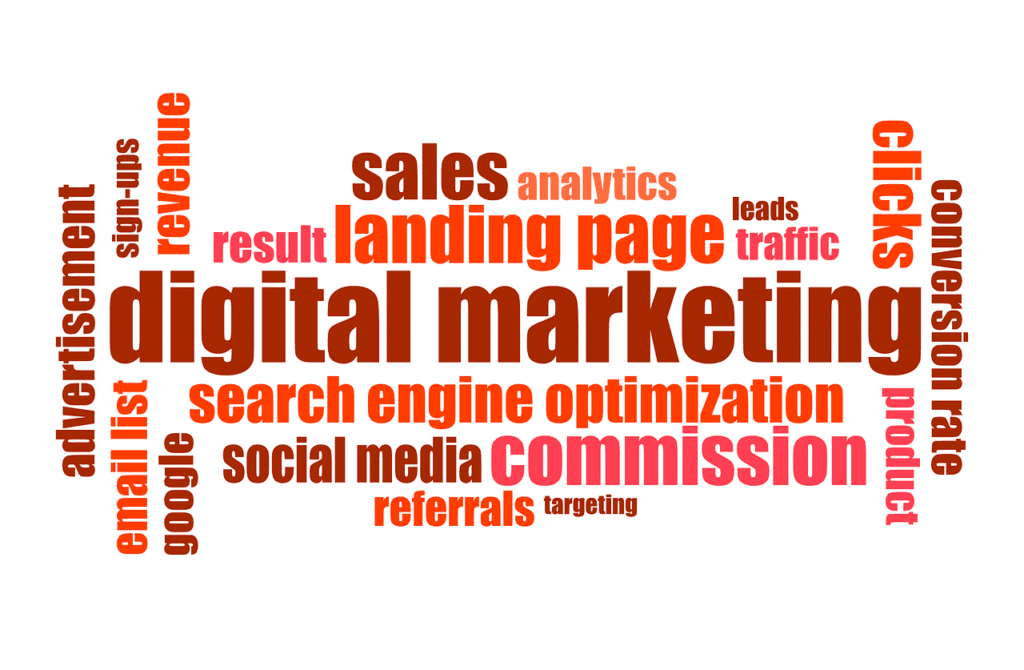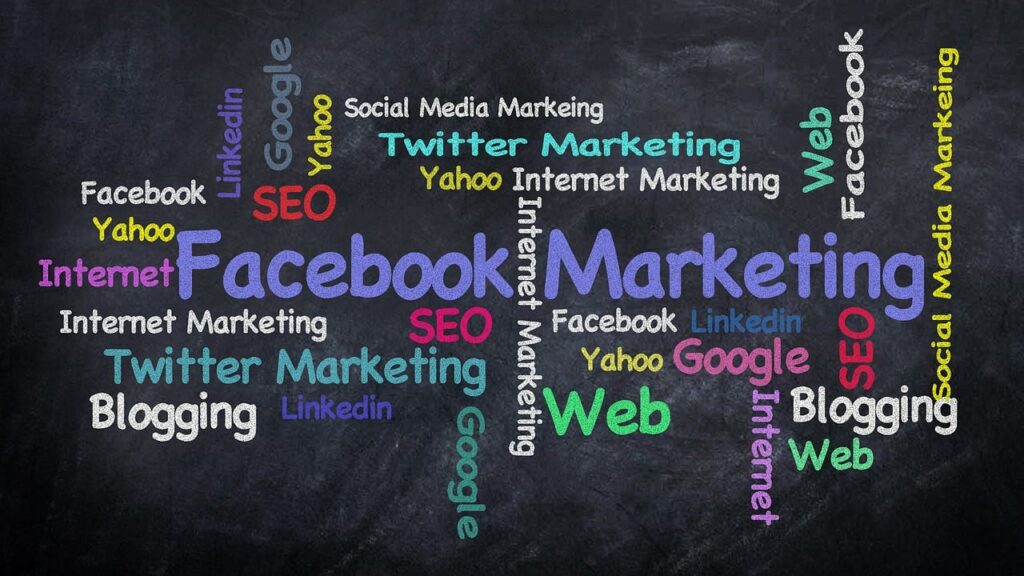
Digital Marketing vs. Social Media Marketing

In today’s fast-paced digital landscape, the terms “Digital Marketing” and “Social Media Marketing” are often used interchangeably, yet they represent distinct aspects of online promotion. At Digi Dervish, we believe it’s crucial to understand these differences to harness their full potential for your brand’s growth. In this article, we will delve into the definitions, key components, benefits, and strategies associated with both digital marketing and social media marketing, equipping you with the knowledge to make informed decisions for your business.
Digital Marketing Services
Digital marketing is the term used to describe online marketing campaigns that appear on a computer, phone, tablet, or other device. It can show up in a number of formats, including paid social media advertisements, online videos, search engine marketing, and posts on social media. Sometimes, “Traditional Marketing” strategies like direct mail, billboards, and magazine ads are contrasted with digital marketing. Oddly, traditional marketing is typically associated with television. Nine out of ten adults in the United States use the internet every day.
Digital Marketing Websites

Furthermore, 41% of people log on “almost constantly.” As a marketer, it’s important to take advantage of the digital world with an online advertising presence, by building a brand, providing a great customer experience that also brings more potential customers and mostrategy.It’s crucial for marketers to make the most of the digital era by developing a brand, offering excellent customer service that attracts more potential clients, and more, all while utilizing a digital strategy and an online advertising presence.
Types of Marketing
- Enhancing your website’s position in search engine results pages (SERPs) to increase organic traffic is known as search engine optimization, or SEO.
- Using sponsored ads, such as Google Ads, to rank highly in search results and drive relevant traffic to your website is known as pay-per-click (PPC) advertising.
- Content marketing is the process of creating and sharing relevant and valuable content to engage and captivate a target audience.
- Email marketing is the practice of promoting goods, services, or insightful content by sending customized emails to a list of subscribers.
- Affiliate marketing is the practice of collaborating with companies or people to market your goods in exchange for a commission.
- Web analytics: The process of measuring performance and making decisions by analyzing data from your website and campaigns.
Digital marketing is a holistic approach, integrating multiple channels and strategies to create a comprehensive online presence.
Social Media Marketing Agency

Social media
Social Media Marketing, on the other hand, is a subset of digital marketing focused specifically on platforms like Facebook, Instagram, Twitter, LinkedIn, and Pinterest.
It involves:
- Making Posts, Videos, and Images That Resonate with Your Audience and Promote Interaction is Creating Engaging Content.
- Community management includes interacting with followers, answering their questions, and maintaining the online reputation of your brand.
- Social Media Advertising: Using social media to reach target audiences and accomplish marketing goals through focused ad campaigns.
- Influencer partnerships: collaborating with social media influencers to market goods and services to their audiences.
- Analytics and Insights: Monitoring interactions, impressions, and sales to enhance social media tactics.
While social media marketing is a powerful tool for building brand awareness and community engagement, it operates within the larger framework of digital marketing.
Key Differences Between Digital Marketing and Social Media Marketing
1.Scope of Digital Marketing
Digital Marketing as noted, digital marketing is all-encompassing, leveraging multiple methods to contact potential customers throughout the internet. It covers everything, including PPC, email, and content marketing in addition to SEO.
Social media marketing is a subset of digital marketing that is only concerned with social media platforms. Through social interactions, its main goal is to engage users, forge relationships, and foster brand loyalty.
2. Target Audience
Digital marketing can use a variety of techniques to target a large audience. For instance, PPC advertisements can target specific demographics based on their online behavior and interests, while SEO might draw in visitors who are actively searching for particular keywords.
Social Media Marketing typically targets people according to their social media platform activities, interests, and demographics. Because you can communicate with users in real-time and adjust material to suit their preferences, this enables more tailored marketing.
3. Content Types
A variety of content formats, such as blog posts, infographics, videos, whitepapers, and more, are used in digital marketing. Creating content with the goal of educating the audience, generating value, or increasing conversions is common.
Content intended for social engagement, such as short-form movies, photos, stories, surveys, and user-generated material, is the main focus of social media marketing. To encourage dialogue and interaction is the goal.
4. Metrics and Measurement
Digital Marketing website traffic, conversion rates, bounce rates, and campaign ROI are examples of metrics. Marketers can evaluate overall effectiveness with the aid of these metrics.
Social Media Marketing follower growth, likes, comments, shares, and engagement rates are the main metrics to monitor. Rather than concentrating on straight sales, the goal is to foster community and interaction.
Benefits of Digital Marketing
- Greater reach digital marketing transcends national boundaries to connect with a worldwide audience.
- Cost-Effective compared to traditional marketing techniques, many digital marketing initiatives, such as SEO and content marketing, can be more economically viable.
- Data-Driven using analytics technologies, marketers can monitor performance in real time and modify their plans in response to insights from the data.
- Business Awareness consistent posting and interaction can greatly raise the awareness and recognition of your business.
- Targeted Marketing you may make sure the correct people see your marketing efforts by being able to target particular demographics, interests, and behaviors.
Disadvantages of Social Media
- Community Engagement through real-time communication, social media promotes a feeling of community and patronage.
- Cost-Effective Advertising social media advertisements offer an affordable means of reaching certain audiences because they can be customized to match a range of budgets.
- Influencer Partnerships reaching specialized markets and building credibility can be accomplished by utilizing influencers.
Integrating Digital and Social Media Marketing
Social media and digital marketing have different goals, yet working together is how they work best. For example, you can use social media platforms to promote your blog’s shareable content creation (digital marketing), which will increase traffic and visibility.
At Digi Dervish, we place a strong emphasis on the value of an integrated marketing approach that unites social media and digital marketing initiatives. Businesses can succeed more in their online marketing initiatives by knowing their distinct advantages and how they work well together.
The Role of Digi Dervish in Your Strategy.
In conclusion, developing a strong online presence requires the application of both digital and social media marketing. Despite their obvious distinctions, they also have the same objectives, which are conversion, brand recognition, and engagement. You may develop a successful marketing strategy that is well-rounded by utilizing the advantages of both.
Whether you’re a marketing expert, a small business owner, or someone trying to improve your internet presence, knowing these ideas will help you make wise choices. We at Digi Dervish are here to support you as you navigate the intricacies of social media and digital marketing tactics, making sure your company is seen online.



